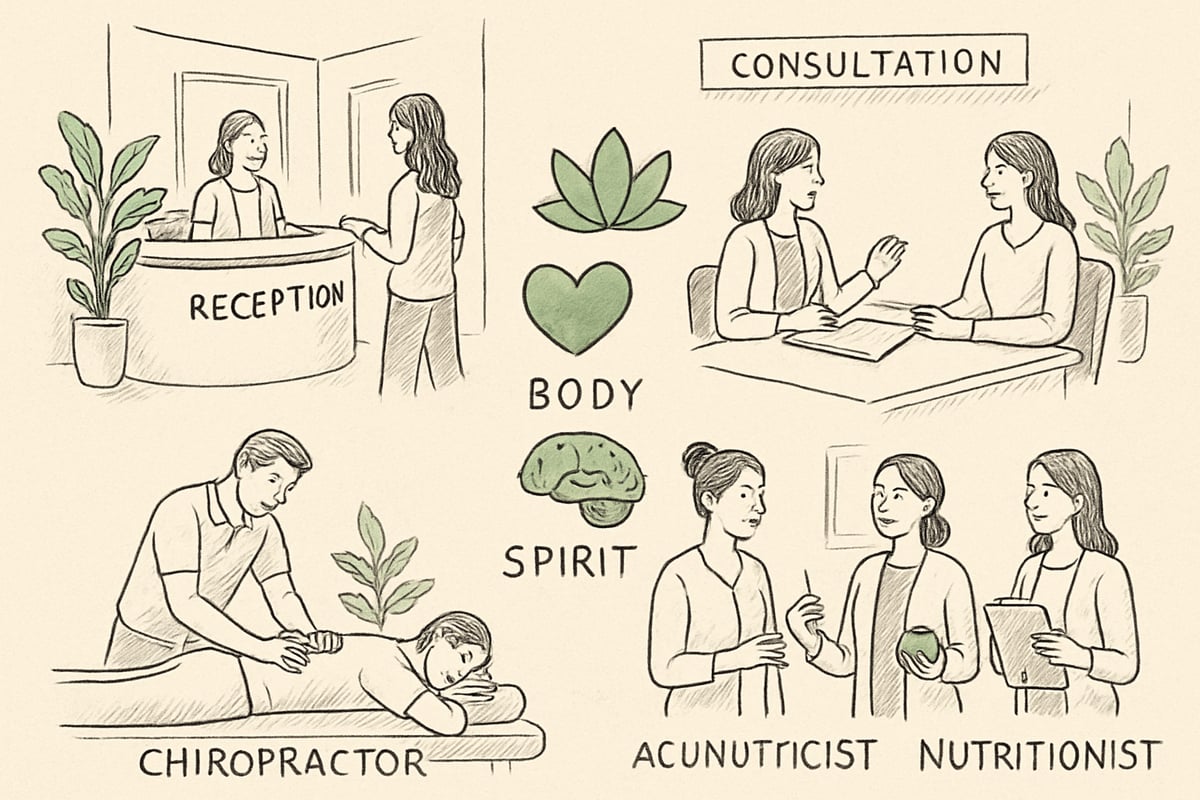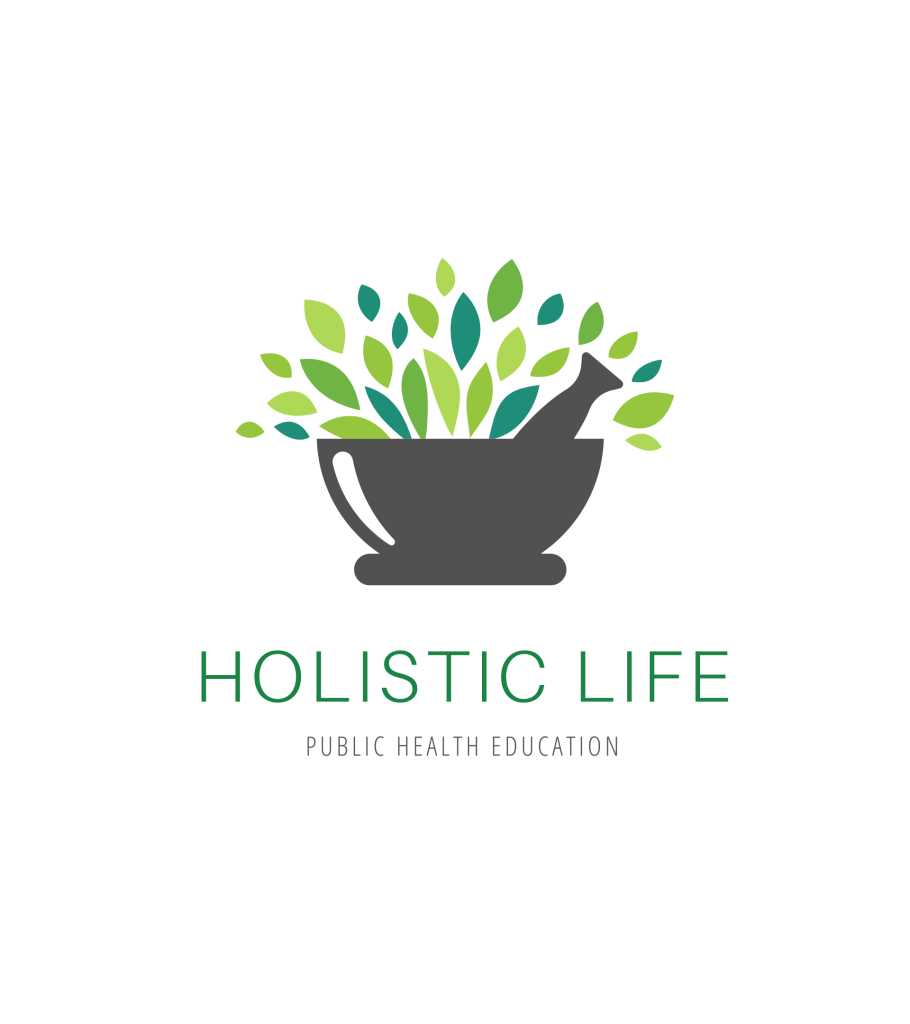Are you ready to transform your health journey in 2025? Discover how innovative approaches are changing the way we view wellness for the modern age.
A holistic health clinic offers a unique path to optimal well-being by integrating mind, body, and spirit in every aspect of care.
This guide will empower you to understand what a holistic health clinic is, explore services, spot emerging trends, and learn how to choose the right clinic for your needs.
You will also discover real patient experiences and gain insight into what the future holds for holistic wellness. Take your first step toward personalized, comprehensive care and lasting transformation.
What Is a Holistic Health Clinic?
Understanding what defines a holistic health clinic is the first step on your path to wellness. Unlike conventional medical centers, these clinics offer a comprehensive approach that considers the mind, body, and spirit. The focus is on addressing root causes, preventing illness, and empowering patients to take charge of their health.
You will often find a holistic health clinic that provides both physical and mental health services in one place. This integrated model has seen a surge in popularity, especially since the pandemic, as more people seek care that treats the whole person, not just symptoms.

Defining Holistic Health Clinics
A holistic health clinic is based on the principle that health is more than the absence of disease. “Holistic” means considering every aspect of a person’s well-being—physical, emotional, mental, and spiritual. This is a key difference from conventional care, which often addresses isolated symptoms.
Holistic health clinics emphasize prevention, looking for root causes rather than just treating surface issues. By integrating both physical and mental health services, clinics empower patients to make informed choices and engage in their healing process. The demand for integrative care has grown rapidly, with more individuals seeking comprehensive solutions for their health needs.
Core Philosophies and Principles
At the heart of every holistic health clinic are patient-centered values and individualized care. Practitioners focus on natural, evidence-based therapies, aiming to use the least invasive interventions first. This approach is called the “therapeutic order,” where lifestyle changes, nutrition, and stress management are prioritized before considering medications.
Collaboration is essential, as teams often include chiropractors, naturopaths, acupuncturists, and massage therapists working together for optimal patient outcomes. To explore these foundational ideas further, see Back to holistic health basics.
For example, many clinics begin with lifestyle and nutrition interventions before recommending advanced treatments. This philosophy ensures that care is both safe and effective, giving patients a sense of ownership over their health journey.
Types of Practitioners and Modalities
A holistic health clinic brings together a diverse team of practitioners. You might encounter chiropractic doctors focusing on spinal alignment, naturopathic physicians using natural remedies, acupuncturists addressing energy flow, massage therapists for bodywork, and nutritionists guiding dietary choices.
These clinics often feature interdisciplinary teams, where collaboration is routine. For instance, a clinic may have in-house experts in chiropractic, acupuncture, nutrition, and counseling. Multidisciplinary teams have been shown to increase patient satisfaction, as care is coordinated and comprehensive.
Here’s a quick comparison of common modalities:
| Practitioner Type | Main Focus |
|---|---|
| Chiropractor | Spine, musculoskeletal |
| Naturopath | Natural therapies |
| Acupuncturist | Pain, energy flow |
| Massage Therapist | Soft tissue, relaxation |
| Nutritionist | Diet, metabolic health |
Conditions Commonly Treated
Holistic health clinic teams address a wide range of conditions. Chronic pain, stress, digestive problems, hormonal imbalances, headaches, and injuries are all commonly managed.
For example, acupuncture may be used for migraine relief, while chiropractic care can help with back pain. There is a notable demand for non-pharmaceutical pain management, as more patients seek alternatives to medication.
The Patient Experience
Your experience at a holistic health clinic starts with an in-depth assessment and continues with a personalized treatment plan. Initial visits are often lengthy, sometimes lasting 90 minutes, to allow for comprehensive health history and lab work.
Ongoing education and support are central. Wellness coaching, follow-ups, and access to resources ensure that patients feel heard and empowered. Compared to conventional clinics, patients frequently report greater satisfaction and a stronger partnership in their care.
Key Services Offered by Holistic Health Clinics
Choosing a holistic health clinic means accessing a diverse range of natural and integrative services under one roof. These clinics prioritize treating the whole person—body, mind, and spirit—by offering coordinated care across multiple disciplines. Let us explore the essential services that define a modern holistic health clinic and how each contributes to your wellness journey.

Chiropractic Care
Chiropractic care is a cornerstone service at many holistic health clinic locations. This therapy focuses on spinal health, the nervous system, and musculoskeletal alignment to promote optimal function. Techniques include gentle adjustments, spinal manipulation, and functional neurology, all tailored to individual needs.
For example, athletes and active individuals often visit a holistic health clinic for injury recovery and performance optimization through chiropractic care. These clinics see 35% of their patients seeking chiropractic as a primary service. By restoring alignment, patients report reduced pain, improved mobility, and better overall wellness.
Naturopathy
Naturopathy is central to the holistic health clinic philosophy. This approach emphasizes natural therapies, lifestyle medicine, nutrition, and the use of supplements and herbal remedies. Naturopathic doctors often employ functional medicine lab testing to uncover underlying causes of chronic conditions.
A holistic health clinic may support patients facing challenges like chronic fatigue or metabolic health concerns. Naturopathic consultations have risen by 25% in the last two years, highlighting the growing appeal of these natural, root-cause solutions. Patients appreciate the individualized care plans and focus on long-term prevention.
Acupuncture and Traditional Chinese Medicine
Acupuncture and Traditional Chinese Medicine (TCM) are integral offerings at a holistic health clinic. Acupuncture is known for its effectiveness in pain relief, stress reduction, and injury recovery. Practitioners often combine acupuncture with herbal medicine and lifestyle advice for comprehensive care.
Patients frequently seek out a holistic health clinic for acupuncture after car accidents or for chronic headaches. The World Health Organization recognizes acupuncture for over 100 conditions, underscoring its value in a modern integrative setting. The blend of ancient wisdom and evidence-based practice attracts a wide range of clients.
Massage Therapy and Bodywork
Massage therapy is another vital service found in a holistic health clinic. Techniques such as therapeutic massage, myofascial release, and sports massage are used to relieve pain, reduce stress, and improve mobility. These hands-on therapies support recovery from injuries like whiplash and address chronic muscle tension.
Approximately 60% of holistic health clinic locations offer massage therapy as part of their core services. Patients often report immediate benefits, including relaxation and enhanced range of motion. This service complements other therapies, creating a well-rounded approach to care.
Functional Medicine and Integrative Health
Functional medicine is a modern evolution within the holistic health clinic model. It centers on root-cause analysis, advanced diagnostics, and personalized lab interpretation. Integrative health teams leverage digital tools to monitor patient progress and adjust care plans in real time.
For instance, a holistic health clinic may use functional medicine to address gut health or autoimmune conditions. The global market for functional medicine is projected to grow 7% annually, reflecting increasing demand. Patients value the precise, data-driven strategies and ongoing support these clinics provide.
Additional Services: Laser Therapy, Prolotherapy, and More
Many holistic health clinic settings are expanding to include advanced therapies such as hot laser therapy, prolotherapy, spinal adjustments, and therapeutic rehabilitation. These services offer targeted pain management and support tissue healing for conditions like neuropathy.
For example, laser therapy is used in a holistic health clinic to accelerate recovery and reduce inflammation. Clinics continue to broaden their offerings to meet the unique needs of their communities. To explore a comprehensive list of services and the holistic philosophy, visit the Holistic Family Practice homepage.
Trends and Innovations in Holistic Health Clinics for 2025
The landscape of the holistic health clinic is rapidly evolving as we approach 2025. Patients are seeking more than traditional care—they want integrated, personalized, and accessible solutions that support every aspect of their well-being.
In this section, we explore the top trends shaping the future of the holistic health clinic, from digital advancements to community-driven care.

Digital Health Integration and Remote Monitoring
Digital transformation is at the forefront of the holistic health clinic. Clinics are adopting telemedicine, health apps, and wearable devices to extend their reach and improve patient outcomes.
For example, many clinics now offer remote consultations and ongoing monitoring through secure platforms. This allows patients to track their progress, receive guidance, and communicate with their care teams from anywhere.
According to industry surveys, 70% of holistic health clinics plan to expand telehealth and digital services in 2025. By embracing remote care, clinics ensure greater flexibility and convenience for busy patients. To learn more about these emerging trends, visit Holistic Health Trends to Watch in 2025.
Personalized and Data-Driven Care
Personalization is a defining feature in every modern holistic health clinic. Clinics are using genetic, microbiome, and metabolic data to create highly individualized care plans.
Advanced lab testing helps practitioners understand each patient’s unique needs, allowing for tailored nutrition, supplementation, and lifestyle recommendations. For instance, clinics may design custom supplement protocols based on genetic markers.
With 40% of holistic health clinics leveraging advanced diagnostics, patients benefit from targeted interventions that address root causes rather than just symptoms. This results in more effective and sustainable health outcomes.
Community and Group Wellness Programs
The holistic health clinic is not just a place for individual care—it’s becoming a hub for group wellness and education. Many clinics offer workshops, support groups, and multi-week programs on topics like stress management, detox, or nutrition.
Group classes foster a sense of connection and accountability. Data shows that participation in these programs improves patient adherence by 30%. Patients gain knowledge, motivation, and support from peers who share similar goals.
These community initiatives reflect the clinic’s commitment to holistic well-being, recognizing that social support is a key element of lasting health change.
Focus on Mental and Emotional Wellbeing
A holistic health clinic prioritizes mental and emotional health alongside physical care. Integrative services now include counseling, mindfulness training, and stress reduction techniques.
For example, some clinics offer therapy sessions or meditation workshops as part of their core offerings. This approach addresses the growing need for comprehensive mental health support.
The demand for integrative mental health services has increased by 50%, demonstrating that patients value clinics that address the whole person. Emotional resilience and stress management are essential for optimal wellness.
Decolonizing and Expanding Access to Holistic Care
Equity and inclusivity are shaping the future of the holistic health clinic. Clinics are working to address health disparities by incorporating traditional healing practices and offering culturally relevant programs.
Some clinics have launched Afroindigenous and BIPOC-focused wellness collectives, embracing a wider array of healing traditions. This not only broadens access but also honors the diverse backgrounds of all patients.
As holistic health clinics expand their reach, the goal is to make integrative, patient-centered care accessible and meaningful for every community.
How to Choose the Right Holistic Health Clinic for You
Choosing the right holistic health clinic is a vital step on your wellness journey. With so many options available, finding a clinic that aligns with your health priorities can feel overwhelming. By breaking the process into clear steps, you can confidently select a clinic that supports your unique needs and goals.

Assessing Your Needs and Goals
Begin by clarifying what you hope to achieve with a holistic health clinic. Are you seeking relief for chronic pain, support for stress management, or aiming for preventative wellness? Knowing your health priorities will help you identify clinics that specialize in the areas most relevant to you.
Make a list of your top health concerns and desired outcomes. For example, if your goal is to address hormonal imbalances, look for clinics with expertise in functional medicine or naturopathy. Studies show that 80% of patients value clinics that cater to their personal health goals, making this a crucial starting point.
Evaluating Clinic Credentials and Practitioner Expertise
Next, verify the credentials of the holistic health clinic and its practitioners. Look for appropriate licensure, certifications, and evidence of ongoing professional training. Multidisciplinary teams, including board-certified chiropractors, naturopaths, acupuncturists, and massage therapists, indicate a comprehensive approach.
Use the table below to compare clinic credentials:
| Criteria | What to Look For |
|---|---|
| Licensure & Certification | State/national boards |
| Practitioner Experience | Years in practice, specialties |
| Ongoing Training | Continuing education, seminars |
| Team Collaboration | Interdisciplinary care meetings |
Ensuring high standards builds trust and supports better outcomes at your chosen holistic health clinic.
Reviewing Services, Modalities, and Approach
Evaluate the range of services offered by each holistic health clinic. Does the clinic provide chiropractic care, acupuncture, massage therapy, and nutrition counseling? A diverse selection allows for more tailored, integrative treatment plans.
Ask about the clinic’s philosophy. Do they prioritize lifestyle changes and nutrition before advanced interventions? Clinics that emphasize evidence-based, holistic care can better address the root causes of health concerns. This ensures your care plan is both effective and aligned with your values.
Patient Experience: Reviews, Testimonials, and Outcomes
Research patient experiences to gauge satisfaction with the holistic health clinic. Read testimonials, online reviews, and case studies. Look for clinics with transparent outcomes and before/after stories that demonstrate real improvements in patient health.
High satisfaction rates and positive feedback indicate that the clinic listens to patients and delivers on its promises. Clinics that share patient journeys often foster greater trust and credibility, helping you make an informed decision.
Accessibility, Location, and Virtual Care Options
Consider practical factors like location, hours, and accessibility of your holistic health clinic. Is the clinic conveniently located, and do they offer flexible scheduling? With the rise of telemedicine, many clinics now provide virtual consultations, expanding access to expert care.
Hybrid care models are increasingly popular, with 65% of patients preferring clinics that offer both in-person and online options. If you need remote support, explore Virtual holistic health services to ensure your clinic can meet your needs wherever you are.
The Holistic Health Clinic Journey: What to Expect
Embarking on a journey with a holistic health clinic is a personalized experience designed to address your unique needs, support your wellness goals, and empower you to take charge of your health. Understanding what to expect at each stage can help you feel confident and prepared as you begin your path to optimal wellness.
The Initial Consultation and Assessment
Your experience at a holistic health clinic begins with a comprehensive intake visit. This first appointment often lasts about 90 minutes, allowing practitioners to gather a detailed health history, discuss your concerns, and clarify your wellness goals.
Expect a thorough assessment that covers physical, mental, and lifestyle factors. You may be asked about nutrition, stress, sleep, activity levels, and emotional wellbeing. Many clinics also include advanced lab work for a deeper understanding of your health status.
Patients consistently report that this extended consultation makes them feel heard and valued. In fact, longer intake sessions at a holistic health clinic are linked to higher satisfaction and better long-term outcomes.
Personalized Care Plan Development
After the initial assessment, the next step at a holistic health clinic is the creation of a personalized care plan. This plan is developed collaboratively between you and your practitioner, ensuring your preferences and priorities are central to the process.
Your care plan may include recommendations for nutrition, physical activity, supplements, stress management techniques, and specific therapies like acupuncture or chiropractic care. The goal is to address root causes rather than just symptoms.
Interdisciplinary teams work together to tailor interventions that fit your lifestyle. At a holistic health clinic, every plan is unique, reflecting the belief that optimal health requires individualized strategies.
Ongoing Care, Education, and Support
Continuous support is a hallmark of the holistic health clinic journey. Regular follow-up visits help track your progress, adjust your plan as needed, and provide ongoing education to empower you.
Many clinics use digital health tools, such as apps for symptom tracking, journaling, and reminders. This level of engagement keeps you connected to your care team between visits.
Research shows that patients who receive ongoing support from a holistic health clinic are 50% more likely to achieve their wellness goals. The emphasis on education ensures you have the knowledge and confidence to make informed choices about your health.
Community and Group Engagement Opportunities
A holistic health clinic often offers more than just one-on-one care. Many clinics provide access to group classes, workshops, and wellness challenges that foster a sense of community and shared motivation.
You might participate in a 4-week health collective focused on stress management, nutrition, or detox. These group programs enhance accountability and help you stay inspired on your health journey.
Engagement with others who share similar goals can be a powerful motivator. At a holistic health clinic, community support is seen as a vital part of sustainable wellness.
Navigating Insurance, Payment, and Value
Understanding the financial aspects of care is essential when choosing a holistic health clinic. Clinics provide transparent information about insurance coverage, out-of-pocket expenses, and payment options.
Some clinics accept insurance for certain holistic services, making integrative care more accessible. Others offer flexible payment plans or package pricing to help you manage costs.
A holistic health clinic values clarity and honesty in all transactions. By discussing payment and coverage early, you can make informed decisions and focus on your wellness without financial surprises.
Real Patient Stories: Case Studies and Testimonials
Nothing illustrates the impact of a holistic health clinic better than real patient experiences. Many clinics share case studies highlighting transformative journeys, such as relief from chronic pain, improved energy, or empowered self-care.
For example, patients seeking support for heart health have found lasting benefits through integrative approaches that combine lifestyle changes and targeted therapies. To learn more about how clinics address specific concerns, see Heart health and holistic care.
Testimonials and before-and-after stories build trust and demonstrate the value of a holistic health clinic. These accounts often inspire others to take the first step on their own wellness path.
The Future of Holistic Health Clinics: What’s Next?
The landscape of the holistic health clinic is rapidly evolving as we enter 2025. Clinics are transforming from single-service providers into dynamic ecosystems. This shift responds to growing patient demand for integrated, community-oriented, and technologically advanced care. Let’s explore how the holistic health clinic of the future is being shaped by innovation, inclusion, and a commitment to measurable results.
Expanding the Scope: From Clinic to Ecosystem
The modern holistic health clinic is moving beyond traditional walls, creating comprehensive ecosystems that support wellness on multiple levels. Clinics are now integrating education, digital resources, and community programs to enhance the patient journey. For example, many offer online workshops, health tracking apps, and group challenges. This ecosystem approach allows patients to access support, resources, and expertise both in-person and virtually.
According to the Holistic Wellness Clinics Market Outlook 2025-2032, this expansion is driving significant growth, as more people seek holistic care models that address the whole person. The holistic health clinic of the future will be a hub for lifelong wellness, not just symptom relief.
The Role of Technology and AI in Holistic Care
Technology is transforming how the holistic health clinic delivers care. Artificial intelligence is now used for advanced diagnostics, lab analysis, and personalized treatment recommendations. Clinics utilize AI-driven tools to interpret complex health data, helping practitioners design more precise interventions.
Wearable devices and health apps enable real-time monitoring of patient progress. For example, a holistic health clinic may track sleep, nutrition, and stress patterns to tailor ongoing care. This technology ensures that every patient receives truly individualized attention, improving both outcomes and engagement.
Education and Empowerment for Patients and Practitioners
Education is central to the mission of every holistic health clinic. Clinics are investing in resources to empower both patients and practitioners. This includes online courses, webinars, and certification programs that teach the foundations of holistic medicine.
Patients benefit from accessible learning on nutrition, lifestyle, and self-care strategies. Practitioners gain new skills and stay updated on the latest evidence-based therapies. This culture of education ensures that the holistic health clinic remains at the forefront of innovation and patient empowerment.
Building Inclusive, Culturally Responsive Wellness Spaces
The future holistic health clinic is committed to equity and cultural inclusivity. Clinics are working to address systemic barriers and honor diverse healing traditions. This means creating welcoming environments for patients of all backgrounds and incorporating culturally relevant practices.
Some holistic health clinics now offer Afroindigenous wellness programs or collaborate with traditional healers. By embracing diversity, clinics can better serve their communities and promote true holistic wellness for everyone.
Collaboration with Conventional Medicine
Integration between holistic health clinic teams and conventional medical providers is growing stronger each year. Clinics are forming partnerships with primary care doctors, specialists, and hospitals to provide coordinated care.
This collaborative approach is especially valuable for patients with complex or chronic conditions. For example, a holistic health clinic might work alongside a patient’s primary care physician to design a comprehensive plan that blends natural therapies with conventional treatment. This synergy results in more effective, patient-centered outcomes.
Measuring Outcomes and Proving Value
Holistic health clinics are increasingly focused on data-driven results. Clinics track patient progress, gather feedback, and publish outcomes to demonstrate the effectiveness of their services. This transparency builds trust and helps clinics refine their approaches.
Patients can now review outcome data, such as improvements in pain, energy, or quality of life. By prioritizing measurable results, each holistic health clinic can show its value and secure its place in the future of healthcare.
Preparing for the Next Decade of Holistic Health
Looking ahead, the holistic health clinic is set for remarkable growth and innovation. Predictions suggest that the market for holistic care will reach unprecedented heights in the coming years. According to the Integrative Health Market Report 2025-2033, demand for personalized, integrative solutions is accelerating worldwide.
Expect to see more clinics offering hybrid models, blending in-person and virtual care, and expanding access to underserved populations. The next decade will establish the holistic health clinic as a mainstream, accessible choice for all who seek optimal wellness.
As you look to navigate your personal path to wellness in 2025, remember that knowledge is your most powerful ally. You deserve clarity and confidence as you explore holistic health clinics, new wellness technologies, and integrative care. If you are curious about how to bring holistic principles into your own life, I invite you to take the next step and deepen your understanding. Our free course, Intro to Holistic Medicine I, offers practical insights and foundational tools to help you make informed decisions about your health journey. Ready to get started? Intro to Holistic Medicine I
